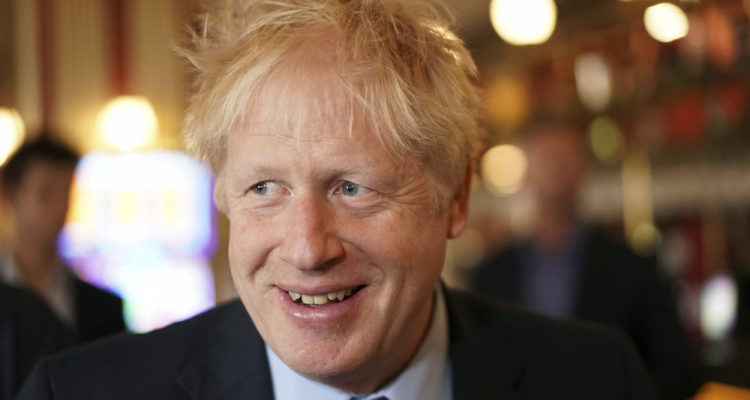The Conservative party had put the proposal in its official political manifesto before the elections.
By Batya Jerenberg, World Israel News
British Prime Minister Boris Johnson is going to make good on the Conservative promise to ban BDS (Boycott, Divest and Sanctions) attempts by any U.K. governmental office, his special envoy for post-Holocaust issues said in Jerusalem on Sunday.
Speaking at an International Institute for Strategic Dialogue conference, Eric Pickles slammed the anti-Israel movement in no uncertain terms.
“BDS is anti-Semitic and should be treated as such,” he said, adding that the sweeping victory the Conservative party just enjoyed last week showed that Britons had rebuffed anti-Semitism overwhelmingly.
“Anti-Semitism is an attack on the British way of life and British identity. Without our Jewish citizens we would be a lesser nation. Without our Jewish citizens, we should be a lesser nation,” the chairman of Conservative Friends of Israel went on to say.
The pertinent clause in the Tory manifesto reads, “We will ban public bodies from imposing their own direct or indirect boycotts, divestment or sanctions campaigns against foreign countries.”
This would include local councils and municipalities, as well as state-funded institutions.
Although the pledge does not mention any country by name, it was inserted soon after the U.K.’s Court of Appeals had upheld a government ban on certain local governments’ pension plans if they divested from Israeli companies due to their involvement in Judea and Samaria.
The newly reelected prime minister is known as a firm supporter of Israel and a longtime opponent of BDS. When he visited Israel in 2015 as mayor of London on a trade mission, he called it “foolish” and mocked its supporters.
“I cannot think of anything more foolish than to say that you want to have any kind of divestment or sanctions or whatever or boycott against a country that, when all is said and done, is the only democracy in the region, is the only place that has, in my view, a pluralist, open society,” Johnson told a local reporter.
He called the movement’s supporters “just a bunch of, you know, corduroy-jacketed… lefty academics who have no real standing in the matter.”
Israel was among the first countries to sign a “continuity agreement” with Britain in February to ensure that the countries’ trade conditions will stay the same after the U.K. leaves the European Union – the key issue in last week’s snap elections. The U.K. is Israel’s third largest trading partner in the world, with $11 billion in goods and services passing between the countries in 2018.





